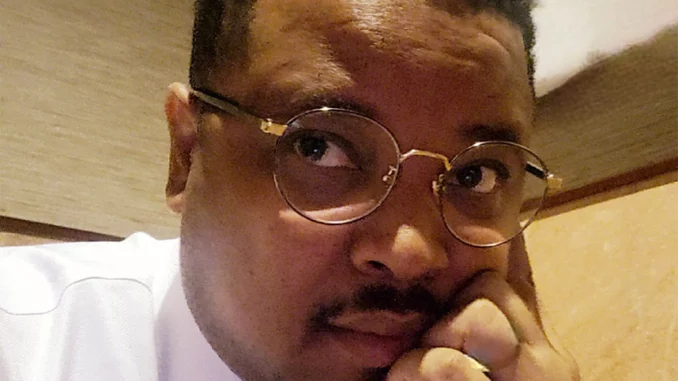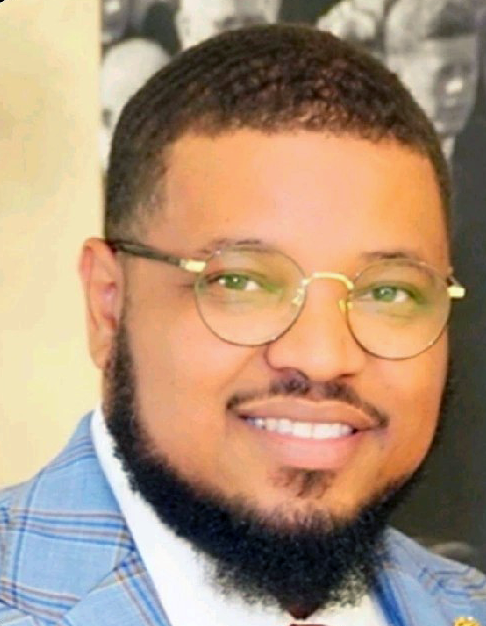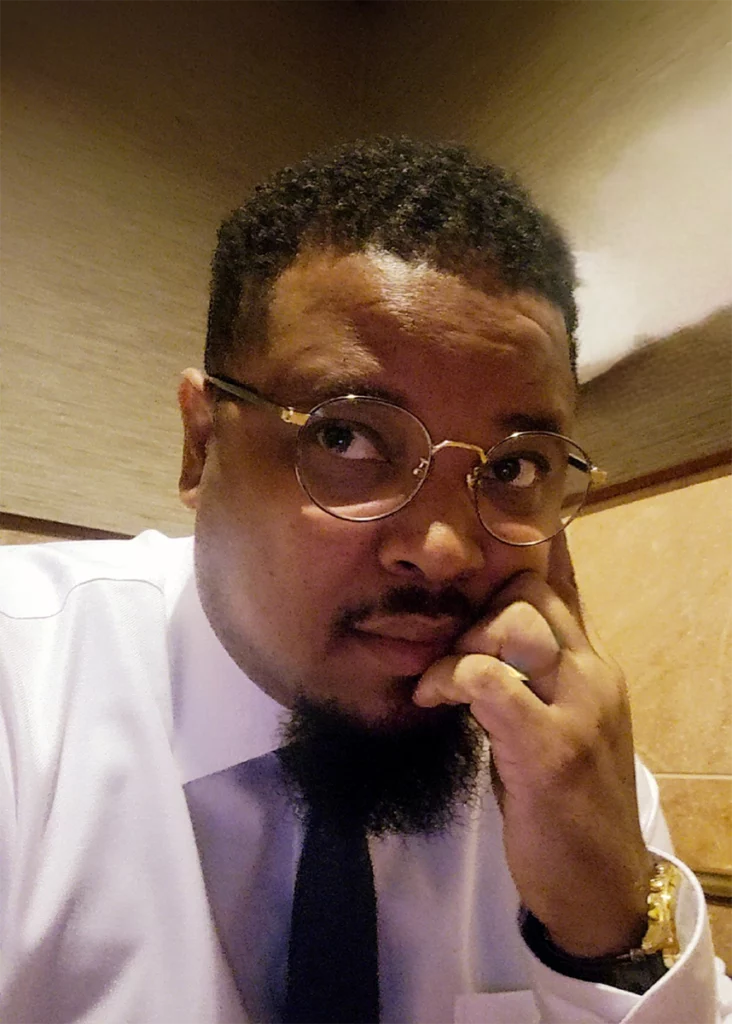
By Staff
Tell us about your role and responsibility at Cheyney University.
In my role as the Sr. Director of Marketing and Communications at Cheyney University, I have the privilege of shaping and sharing our university’s story. My responsibilities involve developing comprehensive marketing strategies that not only attract prospective students but also engage our alumni, donors, and community partners. I lead a dynamic team that crafts compelling narratives through various media channels, celebrating our rich heritage and the remarkable achievements of our students and faculty. Part of my role is to ensure that our communications reflect the university’s ethos and its commitment to academic excellence and social responsibility. It’s a role that brings new challenges and joys every day, and I am deeply committed to advancing the legacy of this historic institution.
How important are Historically Black Colleges/Universities (HBCUs)?
Historically Black Colleges and Universities (HBCUs) have been integral to the American educational landscape. These institutions are much more than academic centers; they are bastions of history and culture, crucial to uplifting African-American communities. HBCUs have been instrumental in offering quality education and opportunities to generations of black Americans, often amidst systemic challenges. Despite representing only 3% of the country’s colleges and universities, HBCUs enroll 10% of all African American students and produce nearly 20% of all African American graduates, including 25% of African American STEM graduates.
The environments at HBCUs are uniquely tailored to foster learning free from racial prejudices, with students’ heritage reflected in the curriculum and the faculty. These institutions have produced 80% of black judges, 50% of black lawyers and doctors, and are the alma mater of a significant number of African-American leaders in various fields. For instance, over the past 35 years, HBCUs have produced luminaries such as:
- Kamala Harris, a Howard University alumna, made history as the first female Vice President of the United States.
- Stacey Abrams, a Spelman College graduate, is a noted political leader and voting rights activist.
- Chadwick Boseman, an alumnus of Howard University, was a renowned actor celebrated for his roles in culturally impactful films.
- Taraji P. Henson, also a Howard University alumna, has achieved great success as an actress and author.
These alumni exemplify the profound impact HBCUs have on nurturing leaders and professionals who contribute significantly to various sectors, from politics and law to the arts and sciences.
In essence, HBCUs are not just educational institutions; they are transformative powerhouses, profoundly contributing to the social, economic, and political advancement of African Americans and the nation. Their role in shaping leaders, fostering academic excellence, and promoting social justice is unparalleled.
What do you think about Affirmative Action being revoked?
Affirmative Action revocation is a complicated and nuanced topic. On the one hand, it calls into question recent advances in assuring diversity and equal opportunity in education and work. Affirmative Action has been an important strategy for resolving historical and systemic injustices that minorities encounter. It has provided opportunities for many people who might otherwise have gone unnoticed. On the other hand, the debate about its revocation highlights the need for our society to discover other, possibly more comprehensive, approaches to achieving inclusivity and fairness. While I support equal-opportunity policies, I also believe in adapting our tactics to suit the changing dynamics of our society. It is about striking a balance where excellence and equality coexist peacefully.
What can HBCUs do to maintain their viability?
To maintain their viability, HBCUs should adopt a multi-faceted approach that includes intentional fundraising, deepening research capabilities, and understanding their impact on the social and economic mobility of the African-American middle class.
- Intentional Fundraising:
Fundraising is vital for HBCUs, and it needs to be both strategic and intentional. We must identify and cultivate relationships with a diverse range of donors, from alumni who have a personal connection to the institution to corporations and philanthropists who are invested in supporting educational equity. Tailoring fundraising campaigns to target specific needs, such as scholarships, faculty development, or infrastructure improvements, can help potential donors see the tangible impacts of their contributions. Additionally, grant writing to secure funds from governmental and private foundations should be a priority, as these funds can support both current operations and long-term projects. We should also explore innovative fundraising methods, such as endowment building and capital campaigns, to ensure financial stability and growth.
- Deeper Research:
Enhancing research capabilities is another key area. HBCUs should focus on developing research programs that address both traditional academic areas and issues directly impacting the African-American community. This dual focus not only contributes to the body of knowledge but also reinforces the relevance and necessity of HBCUs in contemporary society. Collaborations with other academic institutions and industries can provide the necessary resources and expertise to deepen research initiatives. By fostering a robust research environment, HBCUs can attract top faculty and high-caliber students, further elevating their academic standing and contributions to critical societal issues.
- Impact on Social and Economic Mobility:
The role of HBCUs in promoting the social and economic mobility of the African-American middle class cannot be overstated. These institutions have historically been gateways to higher education for many African Americans, offering opportunities that may not have been available otherwise. By providing a nurturing and culturally responsive educational environment, HBCUs enable students to achieve academic success and career readiness. Graduates of HBCUs often enter into professional fields that offer greater economic stability, thereby contributing to the growth of the African-American middle class. Furthermore, HBCUs serve as economic engines in their communities, creating jobs and fostering local business growth. Continued focus on curriculum relevance, career services, and alumni networking can further enhance this impact, ensuring that HBCU graduates are well-prepared to succeed and contribute to economic growth in their communities and beyond.
In summary, through intentional fundraising, deepened research, and a focus on their role in enhancing social and economic mobility, HBCUs can maintain and expand their critical role in shaping the future of African-American communities and wider society.
Tell us about the impact that President Aaron Walton has had on the institution.
President Aaron Walton’s tenure at Cheyney University has been transformative. His visionary leadership has steered the university towards financial stability, academic excellence, and institutional growth. Under his guidance, the university has seen enhancements in academic programs, infrastructure, and community engagement. He has been instrumental in forging partnerships that benefit our students, including collaborations with industry leaders. His commitment to the university’s mission is evident in his efforts to ensure that Cheyney remains a higher-education leader. His impact goes beyond the tangible; he has instilled a renewed sense of pride and optimism in the Cheyney community, reinvigorating our beloved institution.
Where do you see the brand of Cheyney in the next five years?
In the next five years, I envision the Cheyney brand growing stronger and more influential. We are on a path to becoming not just a leader among HBCUs but a distinguished name in higher education nationally. Our focus on innovative academic programs, community engagement, and strategic partnerships will elevate our reputation. Cheyney is becoming a go-to institution for students seeking a culturally rich, academically rigorous education. Our brand will be synonymous with resilience, excellence, and innovation. As we build on our historic legacy, Cheyney’s brand will continue to inspire, empower, and make a meaningful impact in the lives of our students and the wider community.
Social Media
www.linkedin.com/in/shawngauthney
@mrgee310/Instagram







